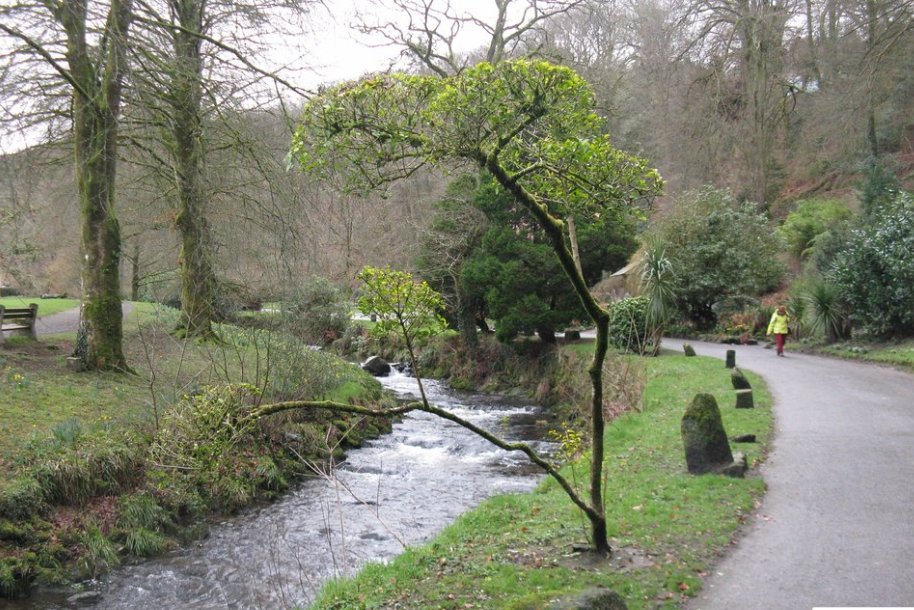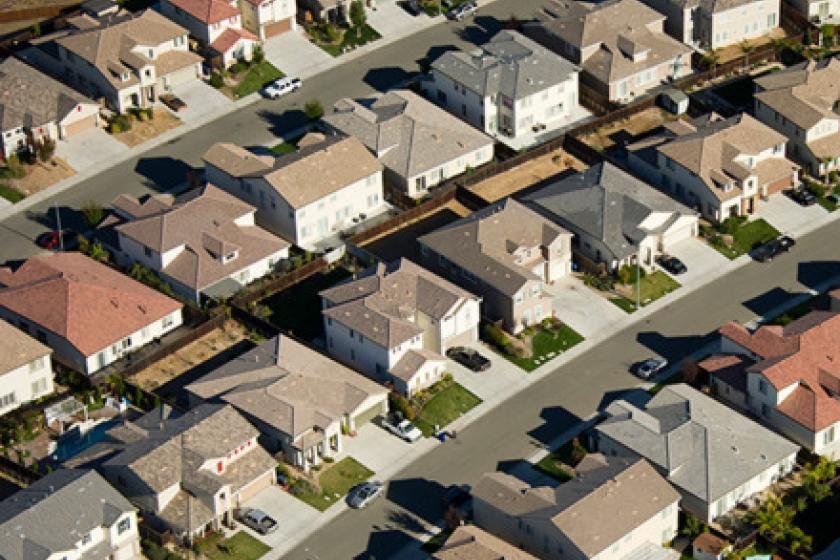|
|
PLACE / PLACES
WHERE PEOPLE LIVE THEIR LIVES
WHERE SOCIETY, NATURE AND ECONOMICS COME TOGETHER
|
|
Okehampton, Devon. England
|


Norman Castle
|


Simmons Park
|


Local Viaducts
I grew up in this little town in Devonshire, England.
The town has been in this place for a long time, and was documented in the Domesday Book compiled by William the Conqueror after he had defeated the English at the Battle of Hastings.
The local castle dates back to Norman times. It was built under the orders of Norman the Conqueror to consolidate his power.
The rail viaducts and the park go back to Victorian times.
|
|

|
|
|
|
PLACE - WHERE PEOPLE LIVE THEIR LIVES / WHERE EVERYTHING HAPPENS
Everything happens in PLACE, it is where people live and work and play, and, it is where economic activity consumes resources, degrades the environment and produces products that are needed and wanted by people.
The performance of place depends a lot on the people or human capital of the place ... their culture, their character, their skills and a host of other people characteristics.
The performance of place also depends on the natural capital of the place. Over the course of history places have been successful when human capital and natural capital complement each other.
|
PLACE - AN EFFECTIVE LOCUS FOR ANALYTICAL METRICS
A PLACE does not move ... it stays in the same location for ever. This is a basis for reliable comparative performance over time.
TPB Note: I grew up in Okehampton, Devon, England around 70 years ago. Its population was a little over 4,000 people, up from about 3,500 in the 1930s. Almost a thousand years before the place had a population of a few hundred as recorded in the Domesday book prepared by William the Conqueror after the Norman Conquest of 1066.
The persistence of a place contrasts with the ephemeral nature of much of modern metrics.
In the official development assistance (ODA) world occupied by the World Bank, other Development Banks, the United Nations and NGOs, a common form of performance evaluation is the monitoring of 'projects'. Projects exist for a short time, sometimes as little as a year, and rarely more than 5 years and they can also be mobile ... two characteristics that make accountability incredibly difficult.
|
ALL
THE
CAPITALS
OF THE
PLACE
SOCIAL, NATURAL, and ECONOMIC CAPITALS
|
SOCIAL CAPITAL OF PLACE
Comprising HUMAN CAPITAL and RELATIONAL CAPITAL
|
HUMAN CAPITAL OF PLACE
The POPULATION ... the PEOPLE are a very important asset for a PLACE
|
The STATE of the POPULATION
A major element in the STATE of the PLACE. This is about QUALITY OF LIFE and STANDARD OF LIVING of the PEOPLE as well as ability to CONTRIBUTE
This depends on access to a variety of PRODUCTS (goods and services) and also on opportunities to be of service and contribute
PEOPLE NEED ACCESS TO EVERYTHING REQUIRED FOR LIVING WITH A DECENT QUALITY OF LIFE
... FOOD
... WATER
... SHELTER
... CLOTHING / STUFF
... ACCESS TO OTHER SERVICES
... ... like retail stores, gas stations, healthcare, childcare, eldercare, education, roads / transport, utilities, public safety, etc
... ACCESS TO EMPLOYMENT
... ... income and jobs are important in quality of life and the ability to pay for essential needs and other things needed for quality of life.
... ACCESS TO CULTURE / RELIGION / RECREATION
... ACCESS TO SOCIAL SAFETY NET
IN TURN PEOPLE HAVE THE CAPACITY TO CONTRIBUTE
... PARENTING
... ... and other family oriented care-giving is a valuable part of QUALITY OF LIFE
... CONVENTIONAL ECONOMIC EMPLOYMENT
... ... working for wages in a for-profit enterprise
... PRO-BONO VOLUNTEERING
... ... is another way to make CONTRIBUTION.
|
RELATIONAL CAPITAL OF PLACE
COMMUNITY, NEIGHBORHOOD and SOCIAL CONNECTIONS
|
LOCATIONAL CAPITAL OF PLACE
HOW THE PLACE HAS IMPACT ON THE ELEMENTS OF SOCIAL CAPITAL
|
CULTURAL CAPITAL OF PLACE
WITHOUT CULTURE ... CONCRETE IS COLD
|
SPIRITUAL CAPITAL OF PLACE
A COMPONENT OF SOCIETY FROM VERY EARLY TIMES
|
NATURAL CAPITAL OF PLACE
Comprising NATURAL SYSTEMS and NATURAL STOCKS
|
NATURAL SYSTEMS ...
LAND / WATER / AIR / CLIMATE
LAND In its natural state the LAND has certain natural characteristics which are changed when there is 'development'. In most cases the NATURAL VALUE will decline as the BUILT VALUE increases. BOTH must be taken into consideration.
LAND - PEOPLE BUILT LAND USE for HUMAN ACTIVITIES, BUILT STRUCTURES, PROCESSES. ETC. ranging from large scale crop mono-culture agriculture, to mining, to deforestation, to mangrove destruction.
LAND - ECOSYSTEM SERVICES are essential for a natural equilibrium but totally ignored in the pursuit of profit. They much be valued and they must be numbered.
LAND - NATURAL BIODIVERSITY has been billions of years in the making, and might be just hundreds of years in reaching extinction on a massive scale. This much be valued and must be numbered.
WATER There are both FLOWS of WATER and STOCKS of WATER. There is also the QUALITY of the WATER and what it can be used for. Some WATER is CONSUMED and some WATER is contaminated. Contaminated water may be treated or it may simply flow downstream through a watershed doing damage as it goes.
AIR / ATMOSPHERE - LOCAL POLLUTION has a direct impact on human health at the local level.
AIR / ATMOSPHERE - ATMOSPHEIRC POLLUTION including Ozone depletion, Greenhouse Gases which fundamentally change the way in which solar energy reaches earth caused by emissions of OO2 and other gases at a local level but with global consequences like global warming, acid rain, etc.
CLIMATE determines many aspects of what is possible in a PLACE. Some places have rainfall, others do not. Some have temperate climate (moderate temperatures) while others are tropical and others are very cold. Some places have violent weather events ... hurricanes, tornadoes, cyclones, etc, Climate change is an existential threat because many established bio-systems cannot adjust rapidly enough and will become extinct.
|
NATURAL STOCKS ...
MINERALS / FOSSIL FUELS / WATER / BIODIVERSITY
|
ECONOMIC CAPITAL OF PLACE
Comprising FINANCIAL, PHYSICAL and INTANGIBLE CAPITALS
|
FINANCIAL CAPITAL OF PLACE
FINANCIAL WEALTH / FINANCIAL FLOWS / BALANCE OF RECEIPTS AND EXPENDITURES
|
FINANCIAL WEALTH
that is financial wealth owned by PEOPLE in the PLACE, or by INSTITUTIONAL STRUCTURES in the PLACE that BENEFIT the PLACE.
FINANCIAL FLOWS - I
that either weaken or strengthen the FINANCIAL STATE of the PLACE as they flow in or out of the PLACE.
FINANCIAL FLOWS - II
that are required internally (taxes and expenditures) in order to maintain the PLACE or improve the PLACE
ECOSYSTEM FOR BANKING AND FINANCE
has become a critical part of the socio-enviro-economic system enabling money based transactions. A similar system is needed to facilitate value based banking.
|
PHYSICAL CAPITAL OF PLACE
Comprising BUILDINGS, INFRASTRUCTURE, MACHINERY AND EQUIPMENT, VEHICLES, INVENTORY
|
PHYSICAL CAPITAL ... BUILDINGS
... HOUSING ...
... OFFICE BUILDINGS ...
... HOTELS / HOSPITALITY ...
... INDUSTRIAL FACILITIES ...
... SPORTS STADIUMS ...
|
PHYSICAL CAPITAL ... INFRASTRUCTURE
... FOOD ...
... WATER AND SEWAGE ...
... HEALTH ...
... EDUCATION ...
... TRANSPORT ...
... BUSINESS / COMMERCE ...
... BUSINESS / BANKING AND FINANCE ...
... BUSINESS / INDUSTRIAL ...
... ELECTRCITY ...
... COMMUNICATIONS ...
|
PHYSICAL CAPITAL ... MACHINERY and EQUIPMENT
... MINING MACHINERY ...
... OIL and GAS DRILLING ...
... MATERIALS PRODUCTION ...
like Iron and Steel, Aluminum, Cement
... REFINERIES ...
producing fuels, petrochemicals / plastics
... PRODUCTION MACHINERY ...
producing automobiles, consumer durables and all sorts of merchandise
... ROBOTS / INTELLIGENT MACHINES
|
PHYSICAL CAPITAL ... VEHICLES
... AUTOMOBILES AND TRUCKS ...
... AIRCRAFT ...
... SHIPS ...
|
PHYSICAL CAPITAL ... INVENTORY
... SUPPLY CHAIN INVENTORY ...
... IN-PROCESS INVENTORY ...
... SALES AND DISTRIBUTION INVENTORY / RETAIL ...
|
INTANGIBLE CAPITAL
Comprising KNOWLEDGE, INSTITUTIONAL, CULTURAL and LOCATIONAL CAPITALS
|
|
KNOWLEDGE CAPITAL OF PLACE
|
|
KNOWLEDGE / KNOW-HOW ... RESEARCH / NEW KNOWLEDGE
|
|
INSTITUTIONAL CAPITAL OF PLACE
|
|
JUSTICE INSTITUTIONAL CAPITAL / GOVERNANCE
|
|
PUBLIC SAFETY / JUSTICE / POLICE
|
|
CULTURAL CAPITAL OF PLACE
|
|
LOCATIONAL CAPITAL OF PLACE
|
Definitions for TrueValueMetrics
Drafted around 2004
|
Issue
Community
|
Basic observation
Community has been ignored by ORDA organizations. Lip service is paid to community and participative processes with rapid visits by experts. Most communities have seen very little of development importance in past sixty years. A vast missing link in the development process .
|
Prevailing response
A growing amount of “participative” development assistance, but the process is still controlled by the donors and the “top” of the socio-economic hierarchy
|
A better response
Community Centric Sustainable Development (CCSD) puts the community at the center of economic progress. It builds on the idea that not only “all politics is local”, but that “all living is local”. A key part of CCSD is using a set of metrics to measure activity cost and the related values within the community.
|
|
|
|

